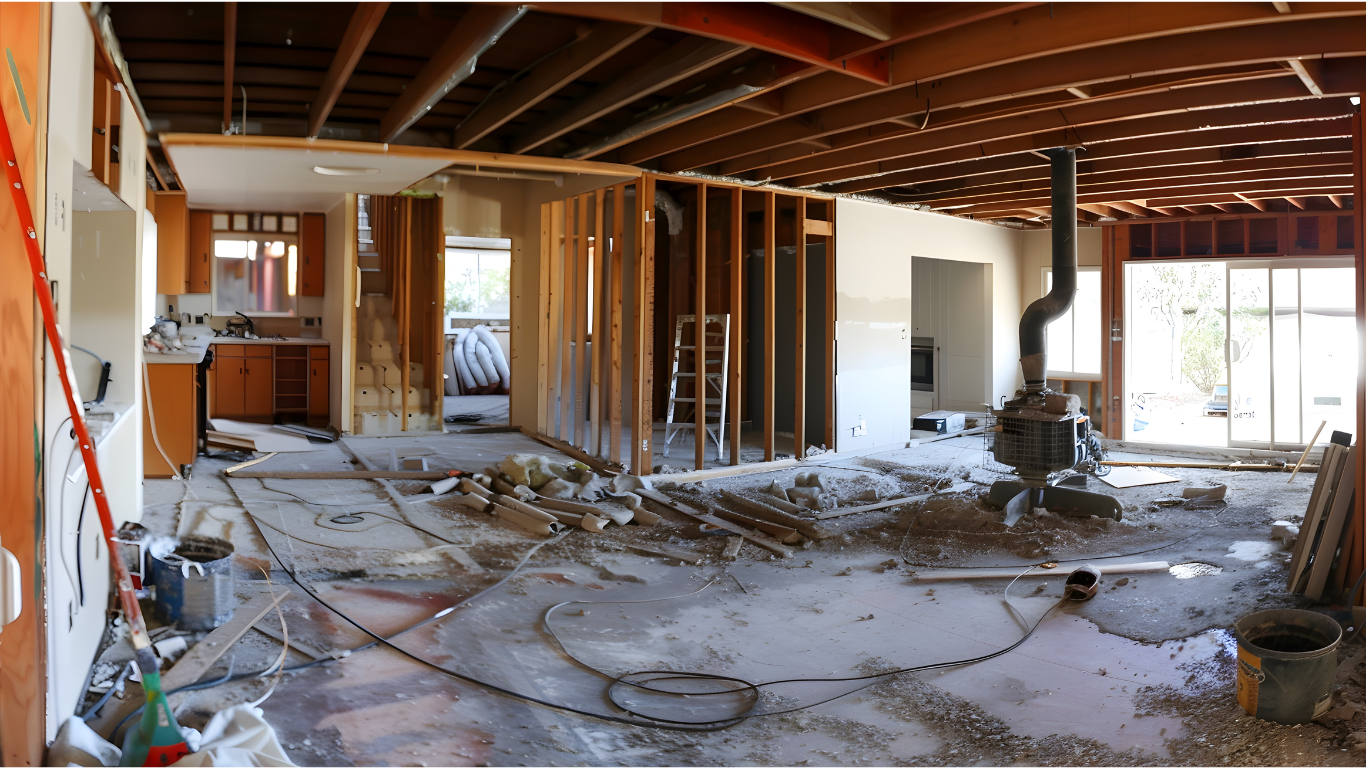The U.S. real estate market has always reflected the nation’s broader economy, expanding during boom times and contracting during recessions. Beneath the surface of suburban growth and luxury condos lies a niche property sector often overlooked: distressed homes, including foreclosures and hoarder houses. These properties present both serious challenges for homeowners and unique opportunities for buyers and investors.
The Rise of Distressed Properties
According to ATTOM’s 2024 Year-End Foreclosure Market Report, the U.S. recorded over 357,000 foreclosure filings, a 10% increase from 2023. Inflation, high interest rates, and rising debt are making it harder for families to stay current on mortgages. While Illinois, New Jersey, and Ohio remain hotspots, southern states like Arkansas are also experiencing elevated distress levels.
Investors, pressed by the housing shortage, are turning toward these unconventional markets. Whether it’s a bank-owned foreclosure or a neglected home in disrepair, distressed properties are becoming a preferred choice for cash buyers who see long-term value in transformation. In many cases, buyers are not just seeking profit but also aiming to restore livability and preserve neighborhood stability, which adds another dimension to these transactions.
Hoarder Houses: A Hidden Segment
Although foreclosures dominate headlines, hoarder homes represent another crucial, undervalued segment. The American Psychiatric Association estimates that 2%–6% of the U.S. population struggles with hoarding disorder, meaning millions of homes may be affected by clutter, neglect, and safety issues.
For traditional buyers, these properties are often overwhelming. Yet for investors and specialized buyers, they are diamonds in the rough. With renovations and cleanouts, hoarder homes can be restored, delivering strong returns in areas struggling with affordable housing.
In Arkansas, selling these properties is particularly challenging. Homeowners often need specialized strategies, such as learning how to sell a hoarder house in Arkansas, and turning to experienced buyers like Paranova Property Buyers, who provide local knowledge, buyer networks, and tailored solutions that reduce the burden on families.
Foreclosures and Investor Demand
Foreclosures remain a core segment of the distressed property market. According to RealtyTrac, the average foreclosure sale in 2024 was 27% below market value, often drawing institutional and cash investors.
In Arkansas, foreclosure activity is trending downward 1,130 foreclosures occurred in the first half of 2024, marking a 17.5% drop compared to the same period in 2023. For many homeowners, however, this continues to be a stressful time. That’s why many begin with practical resources like how to stop foreclosure in Arkansas, which outline actionable steps to delay or prevent foreclosure before it seriously impacts their credit and financial future.

Why Investors Are Watching
Distressed homes aren’t just a niche—they’re a vital part of today’s real estate ecosystem. In fact, Redfin reported that investors purchased nearly 18% of U.S. homes sold in 2024, with a significant portion in the distressed category. Buyers and investors alike are drawn to these markets because they:
- Acquire homes at significant discounts
- Revitalize neighborhoods through renovations
- Expand rental supply where housing is tight
- Diversify portfolios against economic swings
As mortgage rates stabilize in 2025, affordability will remain a crisis. Distressed homes are expected to remain in high demand, offering rare opportunities for those ready to act. For many investors, these properties are not just financial assets; they represent a chance to create housing solutions in communities that need them most.
The Challenges Ahead
Despite the upside, these property types come with risks. Hoarder homes may have environmental hazards and lengthy cleanup times. Foreclosures can involve legal complications or delays. Financing is another barrier since many banks hesitate to lend on severely distressed homes.
Still, with preparation, creativity, and the right partners, these hurdles can be managed and even turned into profitable ventures. Investors who are willing to work closely with local experts can often find ways to mitigate risks and unlock the hidden value in these properties.
Final Thoughts
From foreclosures to hoarder houses, niche property markets in the U.S. are shaping new opportunities for buyers, sellers, and investors alike. For homeowners, these situations are stressful.
A 2024 ATTOM report revealed that nearly 1 in every 1,300 U.S. housing units received a foreclosure filing, while hoarding disorder affects millions of households nationwide. These statistics highlight just how common these challenges really are.
At Paranova Property Buyers, we help Arkansas homeowners handle foreclosure risks and hoarder property sales with practical, stress-free solutions. In 2025, as affordability pressures continue, these overlooked property types could play a key role in both community revitalization and investor growth.
Article received via email





























